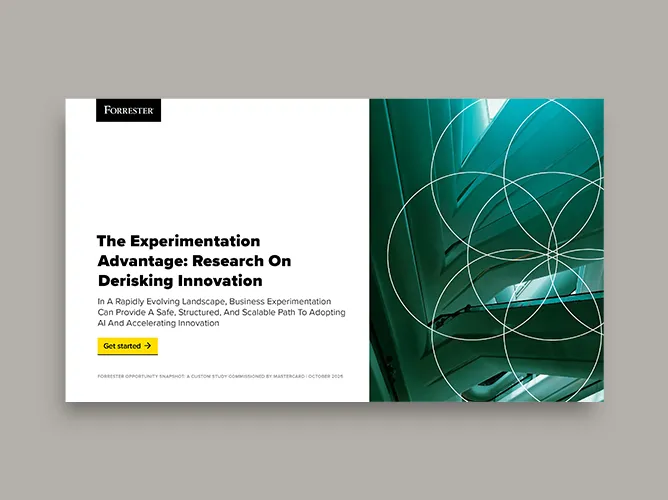Hero Banner
Topics
Cyber & enterprise risk consulting
Product
Mastercard Business Intelligence
Published: February 20, 2025 | Updated: March 24, 2025
Read time: 2 minutes
In an era where cyber threats are becoming increasingly sophisticated and relentless, the traditional perimeter-based approach to cybersecurity is proving insufficient.
1. Inability to define boundaries
- 96% of companies now use public clouds1
- 53% of remote-capable employees in the US are in hybrid work and 27% are exclusively remote2


2. Evolving cyberthreat landscape
- 40% of data breaches involved data stored across multiple environments3
- Breached data stored in public clouds incurred the highest average breach cost at USD 5.17 million3
3. Complex permissions maintenance
- 13% of organizations don’t use single sign-on (SSO) at all4
- 62% of security teams operate with limited visibility across their IT environment5

The concept of ‘trust but verify’ has become outdated, giving rise to a new paradigm: Zero Trust.

Core tenets of Zero Trust
- Assume a hostile environment both inside and outside the network
- Assume breach has already compromised the network
- ‘Never trust, always verify’ approach denies access by default
- Scrutinize explicitly to implement contextual access to resources
- Apply unified analytics to data, applications, assets and services (DAAS)
Read the full report to find out how successful Zero Trust implementation will enhance security and build resilience, ensuring that organizations are better equipped to meet future cybersecurity challenges.
Access Mastercard Business Intelligence
1Cloud Data Insights. ‘Why People Choose Public, Private, Hybrid, or Multi-Cloud Solutions,’ 2023.
2Gallup. ‘Hybrid Work Indicators,’ 2024.
3IBM. ‘Cost of a Data Breach Report,’ 2024.
4JumpCloud. ‘State of IT 2024,’ 2024.
5CyberArk, ‘Why Machine Identities Are Essential Strands in Your Zero Trust Strategy,’ 2024.
2Gallup. ‘Hybrid Work Indicators,’ 2024.
3IBM. ‘Cost of a Data Breach Report,’ 2024.
4JumpCloud. ‘State of IT 2024,’ 2024.
5CyberArk, ‘Why Machine Identities Are Essential Strands in Your Zero Trust Strategy,’ 2024.











